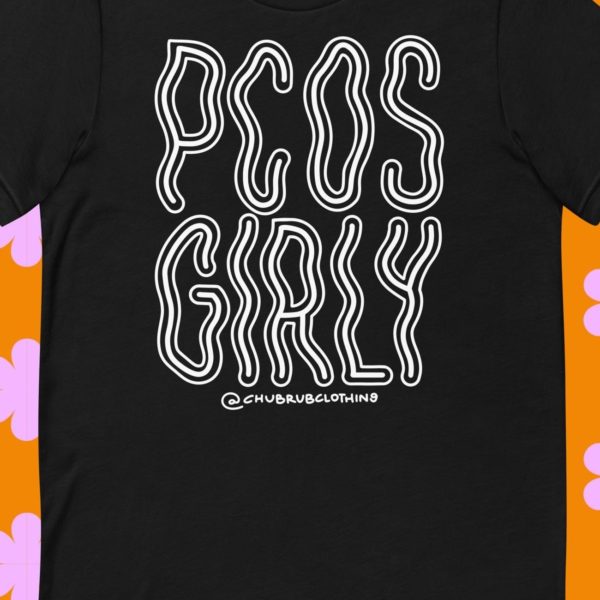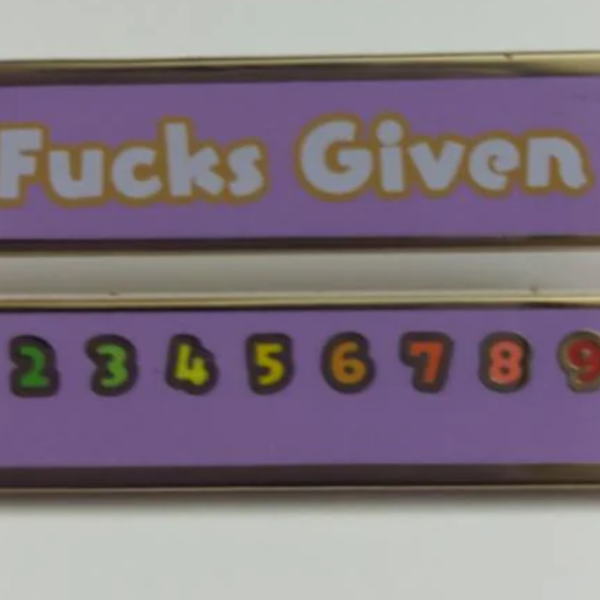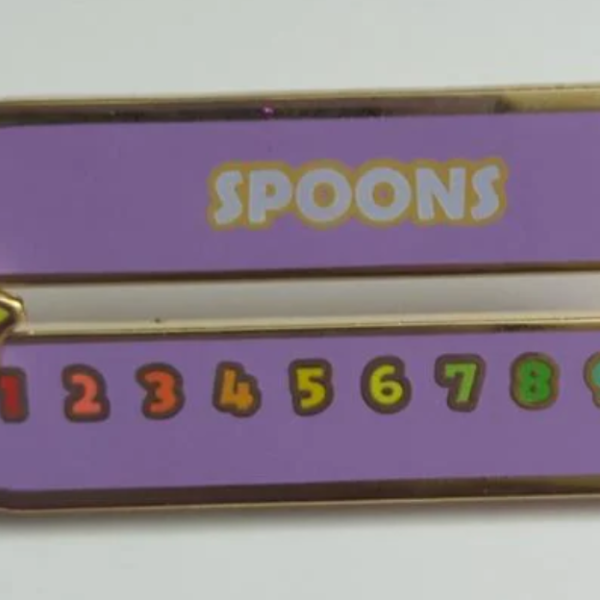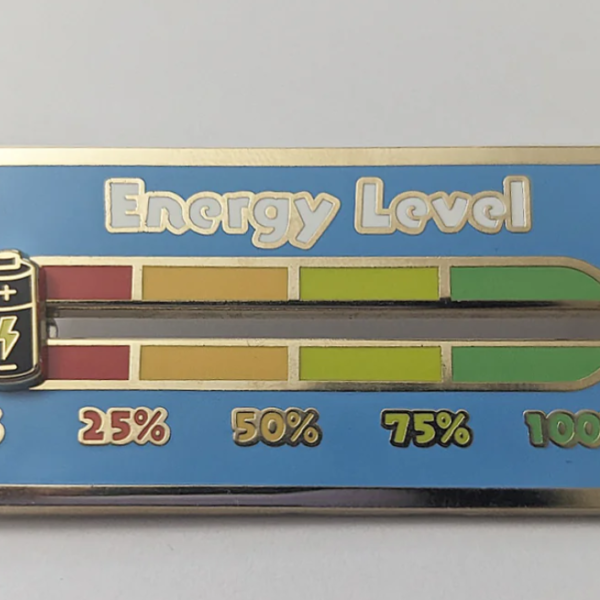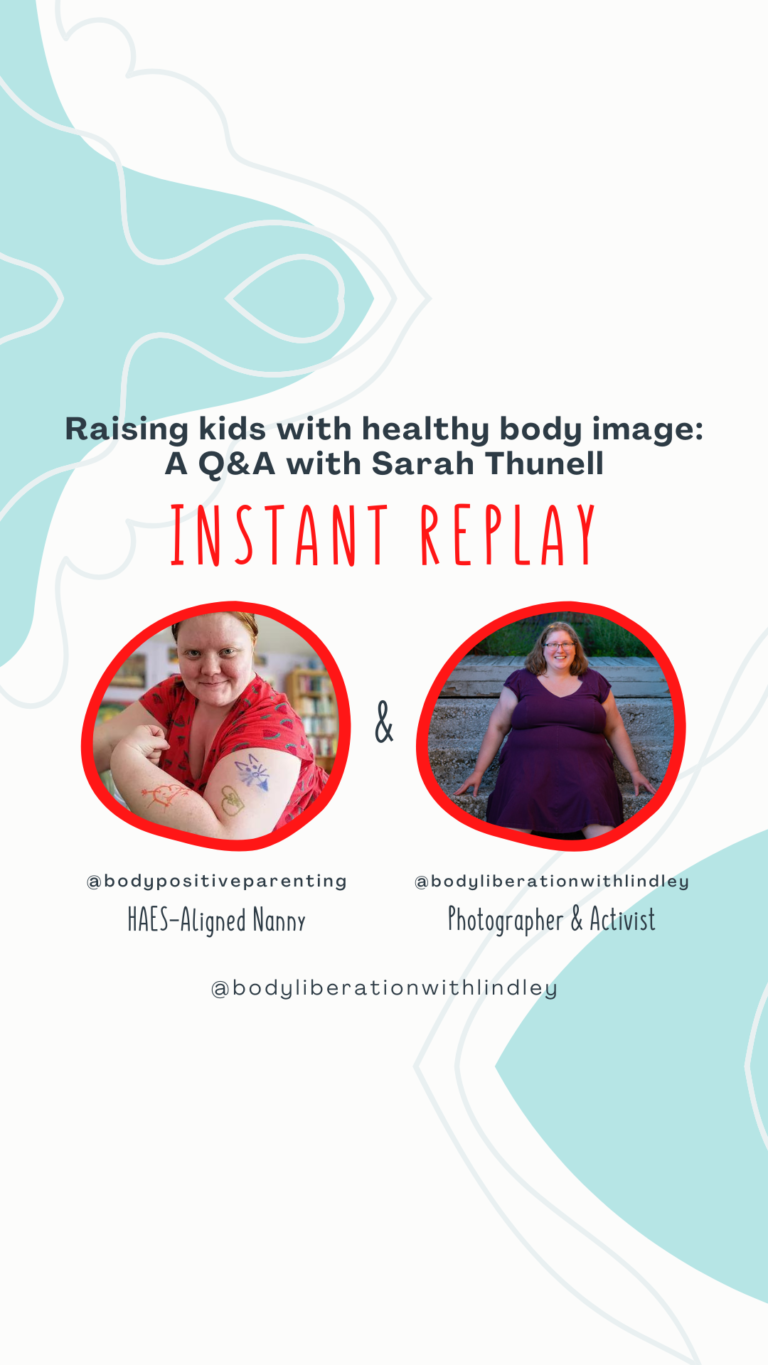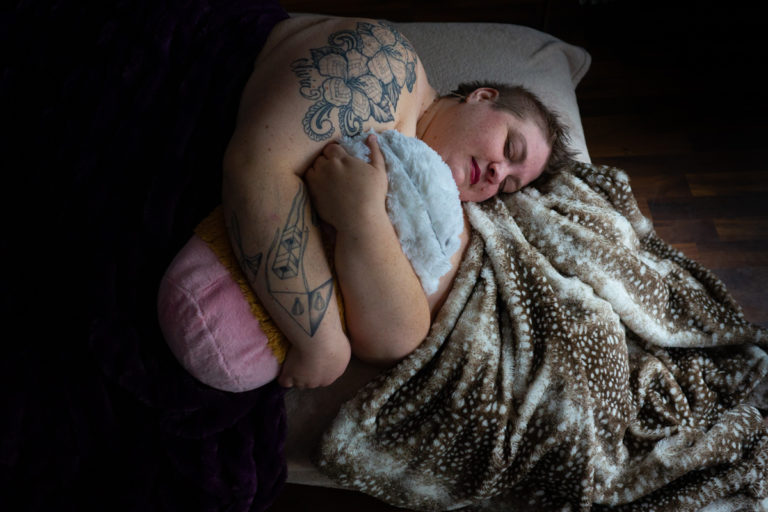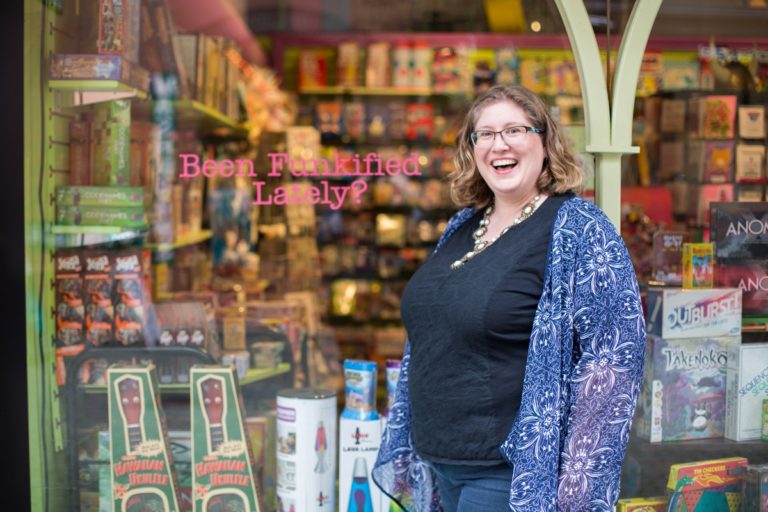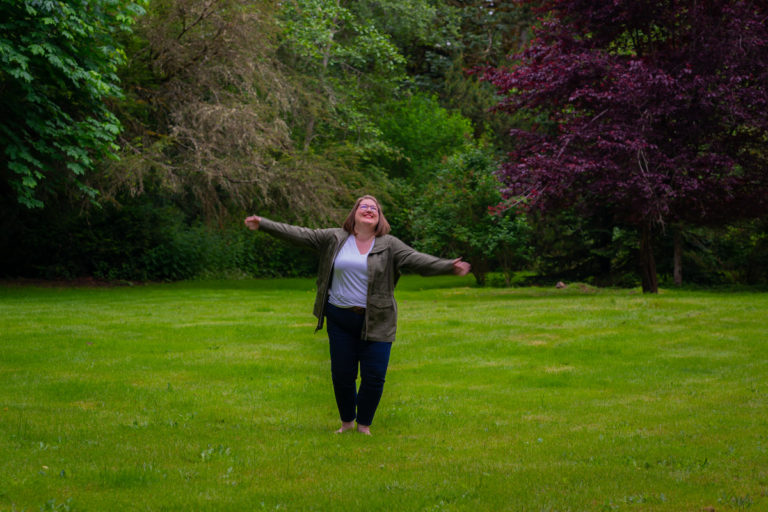Eff Sh*t Up Friday with Dr. Melissa Bird (with Transcript)
What do boudoir photography, subscription boxes and stock photos have in common? What even is a stock photo? How does body liberation play into all this?
In this video, I chat with the wonderful Dr. Melissa Bird about all this and more. Please see the transcript below if (like me) you prefer reading text over watching video with audio.
— TRANSCRIPT —
Dr. Melissa Bird: Helllo, Facebook! Oh, my God! I’m so excited. It’s Friday!
Hi Lindley! How are you?
Lindley Ashline: I’m good. I’m also very happy that it’s Friday. And it is a beautiful spring day outside of Seattle.
Dr. Melissa: Oh, my God… The sun is shining in the Pacific Northwest. It’s like magic!
We’re so funny. We’re so Pacific Northwest people. We’re like, “Oh, my God! The sun came out. What do we do?”
Lindley: Everybody got excited!
Dr. Melissa: Everybody get excited!
I am so thrilled that you are here with me today. It’s so delightful to see you. And I’m so happy that you’re here, and I get to see you in person. It’s so great.
Lindley: Thank you. I’m really glad to be here. Thanks for inviting me.
Dr. Melissa: So yeah, I’m going to do the things where I share the live and tag you in it, so you know where to find it later.
Lindley: Cool!
Dr. Melissa: And I am going to let—you’re going to hear the echo in a minute too. Oh! Hi Lindley!
Lindley: I get to see you in person. It’s so great.
Dr. Melissa: There you go! There’s the echo I was telling you about.
Lindley: Thank you.
Dr. Melissa: Okay, we’re here. Yay!
Hi Lindley! It’s good to see you.
Okay, so… Lindley, tell this amaze boss audience on Dr. Melissa Bird PhD’s website about your awesomeness. Tell us a little bit about yourself.
Lindley: Oh gosh! I’m kind of a jack-of-all-trades. And so I have a lot of different awesomeness that I do.
New at Body Liberation Stock
I’m primarily a photographer. I live outside Seattle. And I do, like I said, a multitude of things. All my work is based on body liberation. If you’ve heard of body acceptance or body positivity or fat acceptance or fat liberation, all of those things are wrapped up in body liberation.
And so, I do have a photography and studio here outside of Seattle, which is also my home, which is really awesome because it’s a super low key, chill experience. I have a beautiful home that also functions as a studio. And I do portrait, boudoir and headshot photography here that is safe for all bodies. I primarily work with larger women, but I welcome everyone of course. But everything I do is very body safe no matter what kind of body you live in.
I also do stock photography. And I think we’re going to go into that a little more. If you’ve never heard of stock photography, we’ll get there. I promise!
It’s more of a business-to-business endeavor. And again, it represents larger bodies and other marginalized bodies and photographs that people can take and use in their own marketing to help represent more bodies in advertising in the media.
Dr. Melissa: It’s so genius!
Lindley: Yay! And finally, I recently started a subscription box called the Body Love Box. And it is, again, also based in body liberation. And it’s all totally free of shame. We talk about bodies. There’s all kinds of goodies in it. Plus, there’s educational stuff in it.
So, it’s a really cool—I kind of call it a sandwich. There’s like yummy, yummy goodies, body-positive swag essentially—stickers and buttons and art prints and beautiful things.
And then, there’s also kind of this meat and bread of education about intuitive eating and health at every size and mindful eating and body acceptance. And again, it’s all coming back to this body liberation.
So, that’s what I do.
Dr. Melissa: Oh, my God! Love at every size! Love at every size, Lindley. It’s so good. It’s so good. So good…
So, how did you decide, “I’m just going to start doing this body liberation movement and start doing these photos and start getting women of all sizes out into the world?” Was there something that happened? Did you have a moment where you were like, “I’m just going to start talking about big girls.” Like what happened?
Lindley: I think like most people’s journey, it was sort of one small thing go on another, and suddenly, here we are.
Back in about 2007, I was on Live Journal (if anybody still remembers Live Journal). It was a blogging site and a journaling site before Facebook was a thing. And on that, there was a community. It basically was like a Facebook group called Fatshionista.
I ran across it. I think somebody linked me over to it way back in 2007. It blew my mind!
At the time, like most people who live in large bodies, I felt really crappy about my large body. I’ve been trying to lose weight for many years. And it would just cycle. I’d lose a little bit, it would come back. I’d lose a little bit, it would come back—which, it turns out, scientifically, that’s what the human body does.
“At the time, like most people who live in large bodies, I felt really crappy about my large body. I’ve been trying to lose weight for many years. And it would just cycle. I’d lose a little bit, it would come back. I’d lose a little bit, it would come back—which, it turns out, scientifically, that’s what the human body does.”
Anyhow, this was my first exposure to women in bodies like mine, big bodies, being confident in themselves, in their bodies. We’re in really cool clothing, being fashionable, and stylish and hot… and being totally unashamed. That was it! It blew my mind.
And again, this was before the body positive movement was even a thing. And now, that’s got a lot of high profile media attention. But at the time, it was totally like an underground thing. There was just this community of women going, “I’m fashionable. I’m stylish… not ashamed.”
And from there, I kind of got into outfit-of-the-day blogging, myself for a while. And I started discovering the fat acceptance movement from there.
And I’m sure a lot of the folks who watch this, that will be a totally new thing to them. So I want to touch on it really briefly.
Fat acceptance, many, many people have heard of the body positive movement where you’re great no matter what kind of body you live in. And that is really awesome, but it also tends to get watered down. It tends to have a “but” after in many people’s minds, like “Your body is great as long as you’re healthy. Your body is great as long as you’re pretty,” you know, or “as long as you’re palatable” or “as long as you’re trying to have an acceptable body. Your body is great.”
And fat acceptance takes it a step further. It says “not only is your body okay even if you live in a fat body”—
And when I talk about fat, and I use the word fat, I’m using it as a neutral descriptor, by the way. It’s not an insult. It’s just I and many other people have reclaimed this. And so, if you’re uncomfortable with the word fat, you totally don’t have to use it. But when I’m using it, that’s what I’m saying. It’s just a descriptor, “I am loving my fat body.”
So, fat acceptance says, “not only is my body okay, even if it’s a fat body, but my body is equally worthy, equally valuable, equally beautiful, equally worthy. And not only is it equally worthy and beautiful, but I have a unique body that is uniquely beautiful because it is a fat body.” So again, totally revolutionary.
So, fat acceptance says, “not only is my body okay, even if it’s a fat body, but my body is equally worthy, equally valuable, equally beautiful, equally worthy. And not only is it equally worthy and beautiful, but I have a unique body that is uniquely beautiful because it is a fat body.” So again, totally revolutionary.
Dr. Melissa: It’s so good!
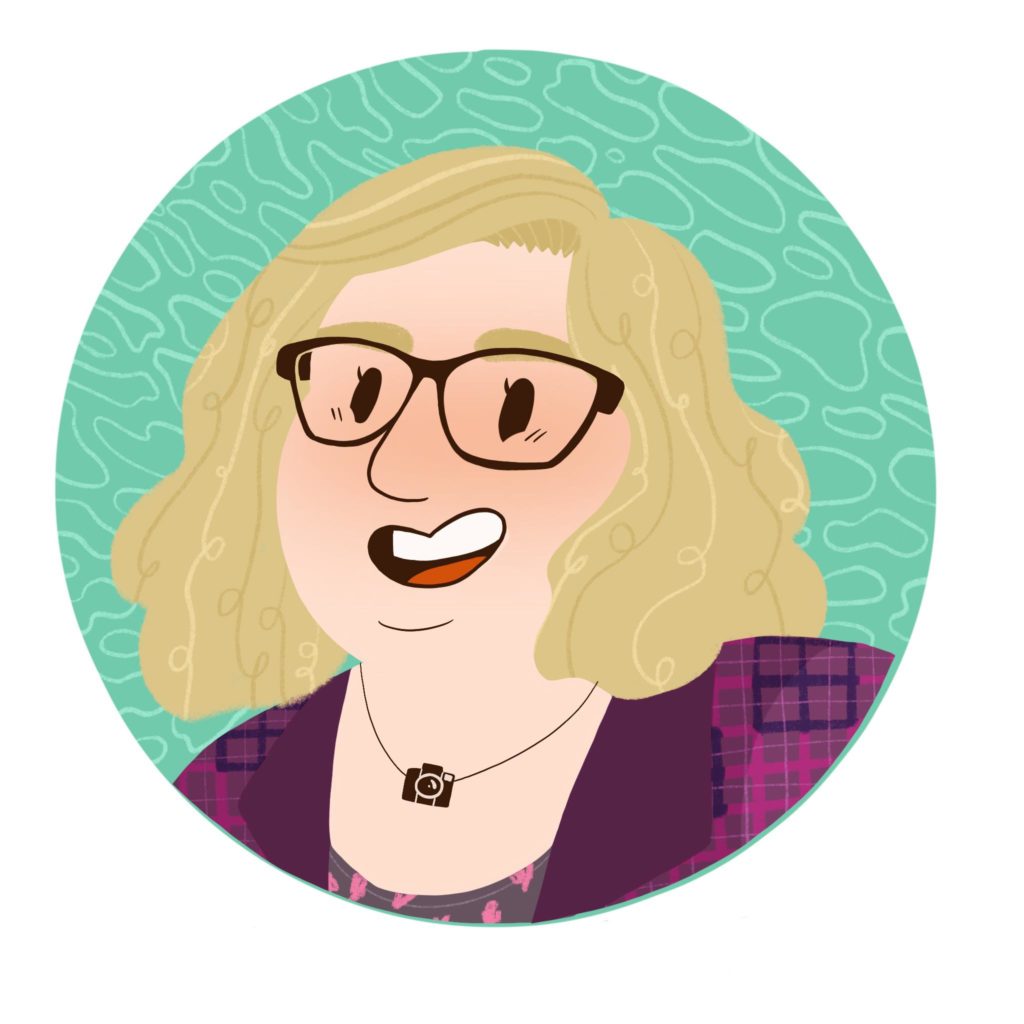
Every Monday, I send out my Body Liberation Guide, a thoughtful email jam-packed with resources on body liberation, weight stigma, body image and more. And it’s free. Let’s change the world together. Subscribe »
Lindley: It is! And once I discovered this—and I was discovering some of the science behind it as well. I got very deeply into it. I started reading blogs. I started reading books. And this whole time, I was also doing major photography. I like pretty mountains and flowers, who doesn’t? And I was working in corporate, a series of corporate jobs. They ranged from okay to awful.
In 2014, I took a job that I thought would be my dream job, a corporate job. And it turned out to be the exact opposite. It was completely dysfunctional. It was really awful! I was crying all the time, just totally miserable. And I said, “I’m done! I’m done. It’s time to do the photography thing full-time.”
Well, to do that, I felt like I really needed to start photographing people. And okay, well, who was my audience? And the natural fit right away—there was never a question—it was going to be fat folks.
And from there, like any photography business, you start building your portfolio, and you start working with people, learning to do portraiture, learning to do boudoir, learning to do glamour, learning to do all these things skill-set wise and working with people. And there’s an extra set of skills too when you’re working with people who are very vulnerable and protective of their bodies with good reason.
So, not only learning to do your standard, “Hi, I’m showing up to do the technical side of the photography,” but also making that experience truly welcoming, making it whatever body you have, not just fat folks, but transgender folks, and just anyone who’s particularly vulnerable or marginalized, how do you make that an actual good experience as opposed to “I’m tolerating you because you showed up and paid me money?”
Dr. Melissa: Yeah, I love how you’ve expanded this into LGBT folks and queer spaces and all that kind of stuff. I just think it’s really delightful.
So, why do you engage in this type of activism?
Lindley: Well, it’s just been such a natural fit because it has built on all these existing puzzle pieces for me. And it just locked together so neatly. But also, nobody else—at the time that I started doing the photography work, there was very, very few—even three years ago, there were very few people doing that work—and nobody locally. And it was just I need to step up because nobody’s doing this work.
And then, in 2016, when I started doing the stock photography, that was an even bigger—nobody in the world is doing this work. No one is producing high quality, commercial-use stock photography of people in fat bodies. Nobody!
Dr. Melissa: Yeah!
Lindley: There aren’t any [stock photo sites done in] a fat-positive weight neutral manner. Nobody! And it blows my mind. It is such a niche that desperately needs to be filled.
“There aren’t any [stock photo sites done in] a fat-positive weight neutral manner. Nobody! And it blows my mind. It is such a niche that desperately needs to be filled.”
And then, when I started doing the Body Love Box late last year, again, nobody was doing that. Nobody was doing weight neutral subscription boxes. And so, it’s just been this building block of, “Oh, here’s a need, let’s fill it. Here’s a need, let’s fill it.”
Dr. Melissa: So great! So, why do you think it’s important for women like you to be visible?
Lindley: You know, coming back to Live Journal in 2007—I feel like such a dork talking about Live Journal. Coming back to that, for me, the difference was seeing people like me—just regular people, not trained models, not like the one token fat supermodel—but just everyday people with bodies like mine and careers like mine and hobbies like mine, just willing to be visible in their bodies and exist in public, that’s what I’m doing now for other people.
And here in Seattle, I also run a book club, like a monthly book club, where we meet up and we pick a different body positive book every month. And we happened to have our meeting last night. And I can’t wait to talk about this because one of my book club regulars, one of my friends who comes all the time, she has just started a blog herself. And someone commented on that because she had mentioned the book club. Somebody else had commented, and said, “Would it be possible for you to start an online version of this because I’m too scared to show up in public?”
And now, we meet up at a pizza restaurant. It is super chill. Super chill! But this is someone who I assume was in a larger body who was so terrified to be seen in public, but they’re scared to come to the book club—not because we as a group might be intimidating, but because it requires for her to literally go out in public. I’m sure she has just been treated that poorly because of the body she lives in.
And that’s why I do this work. I’m just showing up so that so-and-so who was on the other side of the Seattle area can show to the book club and not be ashamed or afraid. That’s why I’m doing this.
Dr. Melissa: Yeah, I think there’s that scene in [Trylle] where the—and for those of you that have not read Trylle or seen Trylle, read it, see it… it’s magic!
Lindley: Yeah!
Dr. Melissa: The trainer comes up to her and is like, “You know, I could totally help you.” And she’s like, “I don’t really want your help. But thanks so much. I’m perfectly fine. Thanks so much.”
This idea that people miss, of the judgment, and the things that people—it’s sort of like with pregnant people, how people would just go up and touch them. People are the same way with fat people. When you’re overweight, people have no problem coming up to you in public and tell you all of the different ways that they can help you to feel better about yourself.
And that’s why people don’t leave their houses because why would you leave if people are going to harass you when you go out in public? And that’s real life. And people don’t think that that is real life, but it is absolutely real life.
“And that’s why people don’t leave their houses because why would you leave if people are going to harass you when you go out in public? And that’s real life. And people don’t think that that is real life, but it is absolutely real life.”
And it’s fascinating, right?
New in the Body Love Shop
And so, I just really love that you are creating these opportunities and these spaces for women in bigger bodies to be seen and to be validated and for people to really understand how people who are marginalized—disabled people, LGBT people, people who live in bigger bodies—that we really have constant and consistent experiences where people marginalize us and shame us and have no problem in public telling us that there’s something wrong with us.
Lindley: Oh, yeah! Yeah, I’m in a lot of a lot of groups that are meant for fat folks on Facebook and just the story is about trying to get healthcare and trying to exist in public and just not be harassed. It’s both enlightening and depressing.
Dr. Melissa: Yeah, just these stories of my friends who have been criticized by their medical providers for not losing weight even though they clearly have a medical condition that’s actually hereditary that that’s not a possibility, the fact that medical providers still continue to misunderstand who we are as potentially healthy people is fascinating to me. It’s so interesting.
Lindley: Yeah, healthcare is a big crusade of mine right now because we have so much science. And if anyone wants the actual citations on this, like links to articles, please feel free to comment or to contact me directly because I have the numbers, I have the science.
Dr. Melissa: Yeah, if you have a couple of links that we can put in the comments when we’re done, I would love that. That would be really cool, put that down in the comments when we’re done. That would be great because I think people really need to read and understand that just because you’re in a bigger body doesn’t mean that you are any less healthy than the average skinny human.
Lindley: Yeah, yeah. There’s a lot. There are correlations between body size and what I tend to call the so-called fat diseases. There are correlations between living in a large body and having high blood pressure, living in a large body and having high cholesterol. But we all know that correlation is not causation.
And even if every stereotype we have about fat people were true, even if I, in a fat body, even if it did mean accurately that I were lazy and gluttonous and a slob and smelly and sweaty and constantly red-faced and gross and never exercised and ate donuts all day without…
Dr. Melissa: Super unsexy!
Lindley: Yeah, yeah… and either oversexed, like desperate for sex, or completely non-sexual, even if all these things were true at the same time, I would not be any less worthy of a human being. I would still be equally worthy to Kate Moss. There is no hierarchy of bodies here. We are all equally worthy.
And the thing is that too, as a fat person, I get to be negative things too without reflecting on every other fat person. I love potato chips. I love potato chips.
Dr. Melissa: They’re so good! Potato chips are the best.
Lindley: Why does it make me any less worthy than someone who never eat potato chips or never eats—I’m actually not a big donut fan, but somebody who never eats donuts or whatever.
And so, coming back to healthcare, the best thing you can do as soon as this video finishes—you know, don’t click away. The best thing you can do is to go on YouTube and look for a video called PoodleScience—poodle like the dog, and science like science. It is a really fantastic primer on what we now know about bodies and weight with modern science.
And the upshot is that…
Dr. Melissa: I’m going to link that right now in the comments.
Lindley: Yeah, do it.
Dr. Melissa: The upshot is that not only are all bodies equally morally valid and worthy, like we’ve been saying, but also we now know that it’s pretty much almost impossible for human bodies to lose significant amounts of weight and keep it off in the long-term.
Many, many people aren’t capable of losing a significant amount of body weight and keep it off for less than a year. But the way that human bodies work is they fight that because they think that we’re dying because we’re starving to death. Your body thinks it’s a famine. And that is how bodies work. You will regain the weight. And usually, you’ll gain more because your body is doing its darnest to protect you when the next famine rolls along. “No, no… we’re not going to starve this time.”
And we know this. We know, we know. And again, I totally have citations for this, and I’ll share them later. But we know from 2014 studies—some of the more recent science that we have. But in the aggregate, a woman in the—I don’t remember the BMI numbers right off-hand. But it might be in the overweight category—has a 1 in 210 chance of losing a significant amount of weight and keeping it off long-term. It’s something like 0.005 percentage point. In a woman in my body size, it’s even less.
And so, my focus is on—and also, you don’t owe anybody health. You don’t owe anybody health. Again, you are equally morally worthy whether or not you are healthy.
And people with chronic illnesses may never meet our current cultural standards of healthy. And that’s okay too. You are worthy no matter what.
But if you want to pursue whatever health looks like for you, there’s an entire movement called Health at Every Size or HAZE that is all about that.
Dr. Melissa: That’s awesome! That’s great. I love it.
So, what is one way you think others can engage in using their voice in their communities?
Lindley: Oh, there are so many things. And it’s so cool because everything makes a difference. Every action that you take makes a difference in your community, and thus, in the greater world. And so, you can literally change the world with small stuff—which is so, so cool.
“Everything makes a difference. Every action that you take makes a difference in your community, and thus, in the greater world. And so, you can literally change the world with small stuff—which is so, so cool.”
New at Body Liberation Stock
Just being willing to be visible in your body… shifting your comfort level takes time. You know, I bought a bikini a few years ago. And that was a thing. Whoa! Whoa!
Dr. Melissa: Wow! That’s a huge thing.
Lindley: And now, because I have literally exposed myself in this bikini over time, I’m totally out there now.
But it is a journey. It is a process. You don’t have to go from “I don’t feel like I can be visible in public and live my life unashamed because I feel bad about that” all the way to [enthusiastic cheering overnight. That’s really not how it works. But it’s okay to do little things.
Just live your life unashamed. Be who you are. And don’t put other people down for their bodies. Don’t snicker at women in crop tops. Be safe for other people to live in their bodies around.
If you don’t approve of somebody wearing leggings in public, it’s not you. It’s not your butt in leggings. If you don’t want to wear them, don’t. But don’t be like, “Ugh…” or snicker at them or give them side-eye.
Just let other people live in their bodies. Don’t impose diet mentality or judging mentality on other people. It’s pretty simple.
“Just let other people live in their bodies. Don’t impose diet mentality or judging mentality on other people. It’s pretty simple.”

Every Monday, I send out my Body Liberation Guide, a thoughtful email jam-packed with resources on body liberation, weight stigma, body image and more. And it’s free. Let’s change the world together. Subscribe »
Don’t go into the office and talk about how bad you are for eating that donut. Just have the donut. Just have the cheese plate and just enjoy it.
And even those tiny, little things, they add up. They make it a safer world for people in bodies like mine.
Dr. Melissa: I love the idea of what you just said about not talking bad about yourself. I think that’s such a huge thing that we—you know, I sell girl scout cookies with my daughter every year. And it is shocking to me the things that women will say to those little girls about those cookies. It is horrifying!
Lindley: Oh, yeah.
Dr. Melissa: …the things that come out of their mouths about girl scout cookies. Skinny women saying, “I’m too fat to buy those. Oh, no, I’ve had enough.”
All of the negative diet culture bullshit things that we get told regularly, women will say to these little 10-year old girls who are just learning how to run a business. And it’s horrifying!
And then, you have people who will come back secretly and like buy 10 boxes of cookies. And it’s so fascinating watching how these messages that we are given for the entirety of our lives, how they work on people, how they work on women in particular. It’s really shocking.
So, what do you wish people knew about the things that you’re passionate about? You’re clearly passionate about this, what do you wish people knew—not about what your topic is in particular, but really, the risk it takes to speak out about things you’re passionate about?
Lindley: So, I think I mentioned a few minutes ago, I have a friend who just started a blog. And this friend is very passionate about her particular topic, like she’s knowledgeable, she’s passionate, she’s fluid in speaking about the thing that she’s passionate about. She’s a fantastic person. And I love her very much.
And she started this blog, and she was three or four beautiful, well-written posts in before she would even tell anybody it existed; and even then, it was just like a little circle of friends. And then, a couple of weeks later, she was ready to release it publicly.
And again, this is someone who’s very confident, a very strong person with a very strong personality. And she was afraid to speak up—even though she’s been speaking about this topic in person for a long time.
Raising your voice can be really intimidating. You don’t know what kind of reception you’re going to get even if maybe you have some experience in another format. What if it’s just all trolls? What if everybody I love thinks it’s just stupid? What if they think I’m awful?
And we, as women, there’s so much imposter syndrome. And the good news is that when you start speaking up on the internet, other than your friends and family, it’s actually really hard to build an audience. It can be a real challenge. And so, the good news is that nobody’s reading the blog. And if what you’re writing is good, you’ll accumulate an audience.
But to start, nobody’s reading your blog unless somebody really high profile is promoting you. If you know somebody really high profile, and they give you a shoutout on Twitter, then other people will find you faster.
But the internet is such a crowded place, but it’s actually a really fantastic place to start putting your views out into the world because, again, nobody’s reading to start with. And it’s a great way to practice.
But also, if it’s a topic where you’re worried that expressing your views publicly might affect your day job or whatever, it’s also a place where you can write, but maybe keep it to a specific Facebook group that you create, or maybe you can create a pseudonym, a pen name, and write under that. But it can be a very safe place to explore your ideas and speaking out loud about them with it being pretty low risk.
Now, I mean if you’re sharing state secrets on a secret blog, and you have a government security clearance, maybe that’s not a wise idea. Those aer things that do have ramifications. And what you’ll find if you’re a woman speaking up publicly on the internet is eventually you’ll start getting trolls. And that’s a different thing.
But in general, just do it. Speak up because most of the internet won’t care. And the rest will be like, “That’s nice…” Or they’ll be really into it.
Dr. Melissa: Yeah, no… I really love that. I love that. Just do it! Just put your stuff out there. The whole world is not going to see it if you put it out there. It’s so good.
So, tell us. You mentioned your stock photos earlier. But I really want to sort of get into this a little bit. So, for those of you that don’t play around in the internet world, it’s really, really hard to find—so for those of us that do a lot of blogging and need images all the time, finding free stock photos in particular, but stock photos that are representative of everybody is really hard.
I didn’t tell you this before, but I have a friend that I’m in a mastermind with. And she links to your website.
Dr. Melissa: Stock photos, Leah did. And she was like, “Hey, I found this amaze-balls website. And look at these stock photos. They’re amazing!” And I was like, “That’s funny you said that because I am interviewing him on my Facebook Live on Friday.”
So, why did you create this space, like why in your heart—not just why like in your head, but why in your heart did you create this space where people could go to find the that photography?
Lindley: Oh, you know, I came out of marketing in my corporate jobs, I was doing a lot of tech marketing and software marketing. And you know those generic stock photos? And when you are seeing you as the general you, when you are out in the world, and you’re seeing billboards, and you’re seeing some magazine advertisements, when you’re seeing healthcare ads, when you’re seeing ads on the internet, you’re seeing anything that has a person in it, there’s a good chance it’s a stock photo. And that just means that there are central websites where you can go—and some of them are free downloads, and some of them require you to purchase them. And you can go use that photo on your blog or whatever. Most people, and even most companies, don’t have the budget to like do custom photos of their own.
And so, I came out of marketing. And I was in a lot of positions where I didn’t have a stock photo budget—or it was very, very low. And so, I’m used to rattling around on 20 different stock photo sites on the internet trying to find one photo. And every photo was of a thin person who also looked like a model—all the time, no exceptions.
And it was just, you know, I came out of that frustration of there are no bodies that looked like mine. And of course, what that means is, because so many of the photos that you see across the internet and across the real world too, are stock photos, it means that all we ever see is thin bodies. And it contributes to the marginalization of larger bodies.
New in the Body Love Shop
Dr. Melissa: And we start to think that that’s normal, like that’s everybody because that’s all we see—white, skinny bodies.
Lindley: Well, okay, everybody knows the conference room photo. Once you’ve seen it, you can’t unsee it. There’s the conference room photo, there’s three people are sitting and two people are standing behind a conference room table. There’s a window behind them. And there are three white men, the black man and the Asian woman.
“Well, okay, everybody knows the conference room photo. Once you’ve seen it, you can’t unsee it. There’s the conference room photo, there’s three people are sitting and two people are standing behind a conference room table. There’s a window behind them. And there are three white men, the black man and the Asian woman.”
Dr. Melissa: Yeah! Always with the black man and the Asian woman.
Lindley: Yes!
Dr. Melissa: Yeah.
Lindley: It’s because it’s representative. And now… and now… I mean it’s a start. It’s a start.
Dr. Melissa: No,no, no, no… never a fat girl in a suit. She’s not in the conference room. No, no! No, fat girls don’t sit in conference rooms. Forget it!
Lindley: Right, right. So yeah, it was a real—from a business standpoint, I started it because I had all these extra photos from my own portfolio we were kicking around. I was like, “Yeah, we will use the fat lady stock photo collection, and we’ll see what happens.” And there was a huge response to it. And so I kept doing it and building it. And now, I have contributors… and it’s a cool thing.
But in the heart sense, it was do I want people that looked like me to be in the world as representing doctors and lawyers and bankers and businesswomen and yogis and everything?
Dr. Melissa: Well, let me know if you ever want to create a big, giant business conference room scene because I have all the friends.
Lindley: Okay!
Dr. Melissa: Monique Sanders says, “I experience a lack of photos or lacking of understanding of the inner self image. I’m listening more than ever because this is a perfect conversation.” I love that, that idea of the inner self-image and how that’s reflected that’s reflected with our outer bodies and the way we are represented in this space because this is a perfect conversation. I love that. Thanks, Monique. That’s awesome.
Lindley: Yeah!
Dr. Melissa: So, last but not least, beautiful Lindley, I have a final question for you. What is one thing that is fanning your flames and lighting you on fire right now?
Lindley: I have to say it’s the Body Love Box because the reactions I’m getting from people—90% of what I do behind the scenes for the Body Love Box. And of course, now that I have said that, I should have brought one up here to hold. I do have a construction of the physical boxes in my basement. So it’s like this huge warehouse-y chaos of cardboard boxes and products. And of course, I didn’t bring one up with me.
But they’re about ye big, ye big. And they go every month, and they’re full of the stuff I talked about earlier.
But the reactions that I’m getting from people, it’s relatively financially accessible for a lot of people who can’t necessarily fly here to Seattle and work with my photography business in person. Supporting a photographer in working with them can be very expensive because of the time involved. And so, this is a much more financially accessible way to do it.
And people get these boxes. And they make videos where they’re unboxing the things because they’re just so delighted. And people write, people will email me or message me and write these really vulnerable messages where they’re just opening up like, “This thing you sent me is resonating with me today because it’s talking about—there’s a letter in this thing where somebody is talking about an exact thing that I’ve experienced in my body. And it just broke my heart open.”
And knowing that you’re making that kind of a difference in that many different people’s lives is just really cool. Like I said, 90% of what I’m doing behind the scenes is either physically putting boxes together, putting things in boxes, or it’s communicating with artists and recruiting artists and things and running numbers. So, the behind-the-scenes can be kind of dry. And it just balances it, and it makes it so incredibly rewarding to have people get these and open them up and just to watch their hearts crack open in the best way.
Dr. Melissa: Oh, my God! I love that so much. Will you put a link to the Body Love Boxes in the in the comments for us?
Lindley: Yeah, It’s TheBodyLoveBox.com. Somebody else got to BodyLoveBox.com before I did, and it’s a dead site. So if you go there, there’s nothing there. So it’s TheBodyLoveBox.com.
The stock photos are at RepresentationMatters.me—not dot-com.
Dr. Melissa: Hold on…
Lindley: And my website is SweetAmaranth.com. And I will put all these in the comments.
Dr. Melissa: Good! I threw in the Body Love Box because that one is easy for me to throw in.L
Dr. Melissa: And I would really love for you to put that link to your stock photos and to your boudoir photography website too in the comments because I just hope that all the people start to use all of your amazing stock photos. I just find it…
You know, Susan Hyatt is my coach. And I had her on the first part of April talking about her new book there which is all about disrupting the diet industry.
New at Body Liberation Stock
Lindley: Ooh…
Dr. Melissa: She talks a lot of the same way you do about your body and that diets are bullshit. Decluttering your life and your environment is the way that you expand. She wants to talk about [unclear 34:36] and all that kind of shit. She has just this whole different way of thinking about bodies.
And so, it’s nice to kind of be bookending April with you and with Susan and these conversations about how we talk about body and how we talk about body image and what that means to us as women. I just think it’s so delightful.
And you have very different perspectives. But I also think a lot of what you’re saying is—this is about loving the skin you’re in, she calls it the GodBod. But it’s really about taking this body and loving on it and giving it what it needs, that nurturing.
And I love what you’re doing with the Body Love Box because I think that’s such a great idea and way for you to just be connecting with people. I love that that’s taking off. It’s so good.
Lindley: Yeah, put Susan’s information in there. I’m pointing downward because this is a video.
Dr. Melissa: I will always promote Susan Hyatt.
Lindley: Yeah, I would want to find that.
Dr. Melissa: Yeah, hold on. Yeah, there it is. I got it! She’s on there too. She’s a bad-ass. She’s just so…
Lindley, thank you so much for being here. Where else can people find you beside your websites?
Lindley: Like I said, I do all kinds of public events in my club and everything here in Seattle. If you are in the Pacific Northwest in general, there is an organization called PMW Fattitude that is very—they’re google-able. And they’re mostly active in Seattle. But technically, they encompass the whole Pacific Northwest. And I’m active in that. Mostly, I’m on the Internet… honestly…
Dr. Melissa: Cool!
Lindley: I live here now. This is my home.
Dr. Melissa: It is a good space to be in, isn’t it?
Lindley: And if you’re looking for a central place to keep up with my shenanigans, I have a self-named website, LindleyAshline.com as well that has links out to everything that I do. So it’s a good place to go: “Okay, this lady does five billion things. Where do I find them all?”
Dr. Melissa: So good!
Lindley, thank you so much for being here with me.
Lindley: Yeah! Thank you for having me.
Dr. Melissa: Yeah! Hang tight for just a second. Stay on.
For those of you who are new to the bird world or who are old to the bird world, don’t forget to follow me on Facebook, Twitter and Instagram at BirdGirl1001. And you can find me on my website at BirdGirlIndustries.com. And don’t forget, I have lots of really amazing events coming up in May, in June, July and August. So check out the website for those details.
Thank you so much, Lindley. It’s a pleasure, a pleasure, being with you.
Lindley: Oh, thanks!

Every Monday, I send out my Body Liberation Guide, a thoughtful email jam-packed with resources on body liberation, weight stigma, body image and more. And it’s free. Let’s change the world together. Subscribe »
Hi there! I'm Lindley. I create artwork that celebrates the unique beauty of bodies that fall outside conventional "beauty" standards at Body Liberation Photography. I'm also the creator of Body Liberation Stock and the Body Love Shop, a curated central resource for body-friendly artwork and products. Find all my work here at bodyliberationphotos.com.


![Illustrated Art Stock: Plus Size Woman Covered with Flowers [Body Liberation Stock exclusive] - Body Liberation Photos & Stock](https://bodyliberationphotos.com/wp-content/uploads/2024/09/Illustrated-Art-Stock-Plus-Size-Woman-Covered-with-Flowers-Body-Liberation-Stock-exclusive-94337-600x600.jpg)
![Illustrated Art Stock: Plus Size Woman Twirls in a Skirt [Body Liberation Stock exclusive] - Body Liberation Photos & Stock](https://bodyliberationphotos.com/wp-content/uploads/2024/09/Illustrated-Art-Stock-Plus-Size-Woman-Twirls-in-a-Skirt-Body-Liberation-Stock-exclusive-94328-600x600.jpg)
![Illustrated Art Stock: Plus Size Woman Twirls in a Skirt [Body Liberation Stock exclusive] - Body Liberation Photos & Stock](https://bodyliberationphotos.com/wp-content/uploads/2024/09/Illustrated-Art-Stock-Plus-Size-Woman-Twirls-in-a-Skirt-Body-Liberation-Stock-exclusive-94323-600x600.jpg)
![Illustrated Art Stock: Plus Size Woman with Hands Over Breasts [Body Liberation Stock exclusive] - Body Liberation Photos & Stock](https://bodyliberationphotos.com/wp-content/uploads/2024/09/Illustrated-Art-Stock-Plus-Size-Woman-with-Hands-Over-Breasts-Body-Liberation-Stock-exclusive-94318-600x600.jpg)
![Illustrated Art Stock: Plus Size Woman with Hands Over Breasts [Body Liberation Stock exclusive] - Body Liberation Photos & Stock](https://bodyliberationphotos.com/wp-content/uploads/2024/09/Illustrated-Art-Stock-Plus-Size-Woman-with-Hands-Over-Breasts-Body-Liberation-Stock-exclusive-94313-600x600.jpg)
